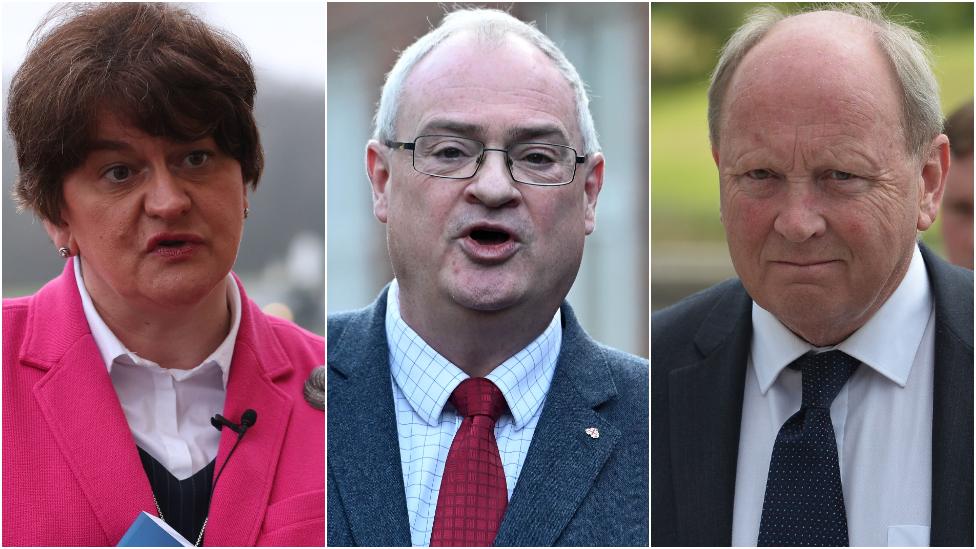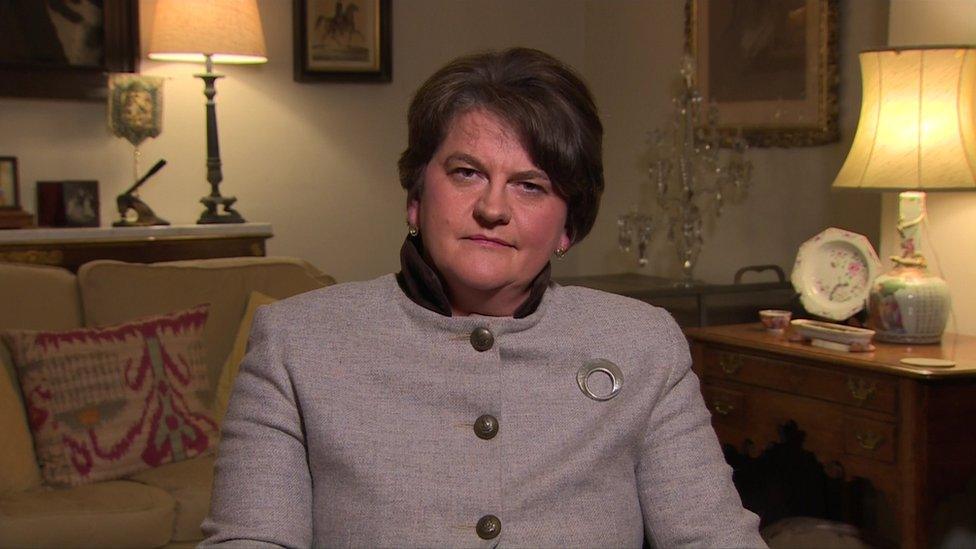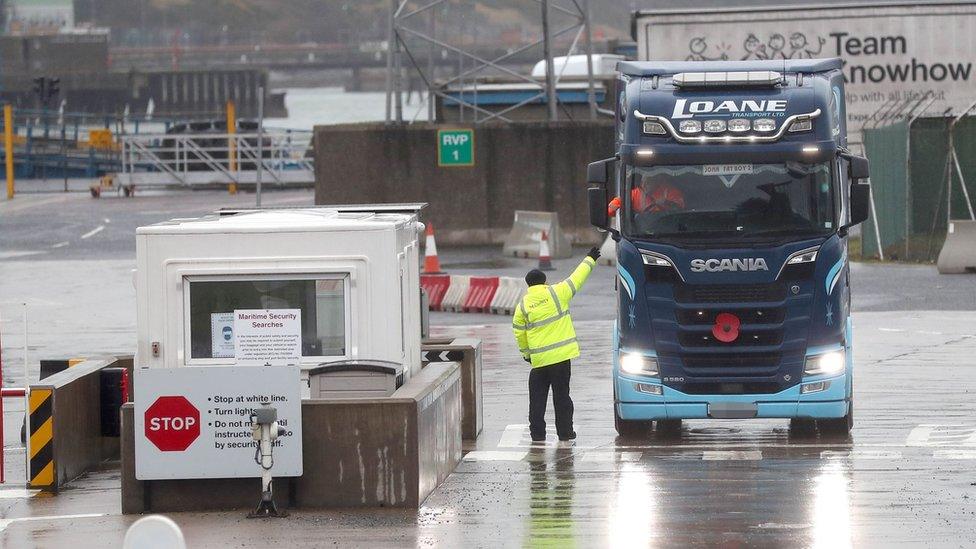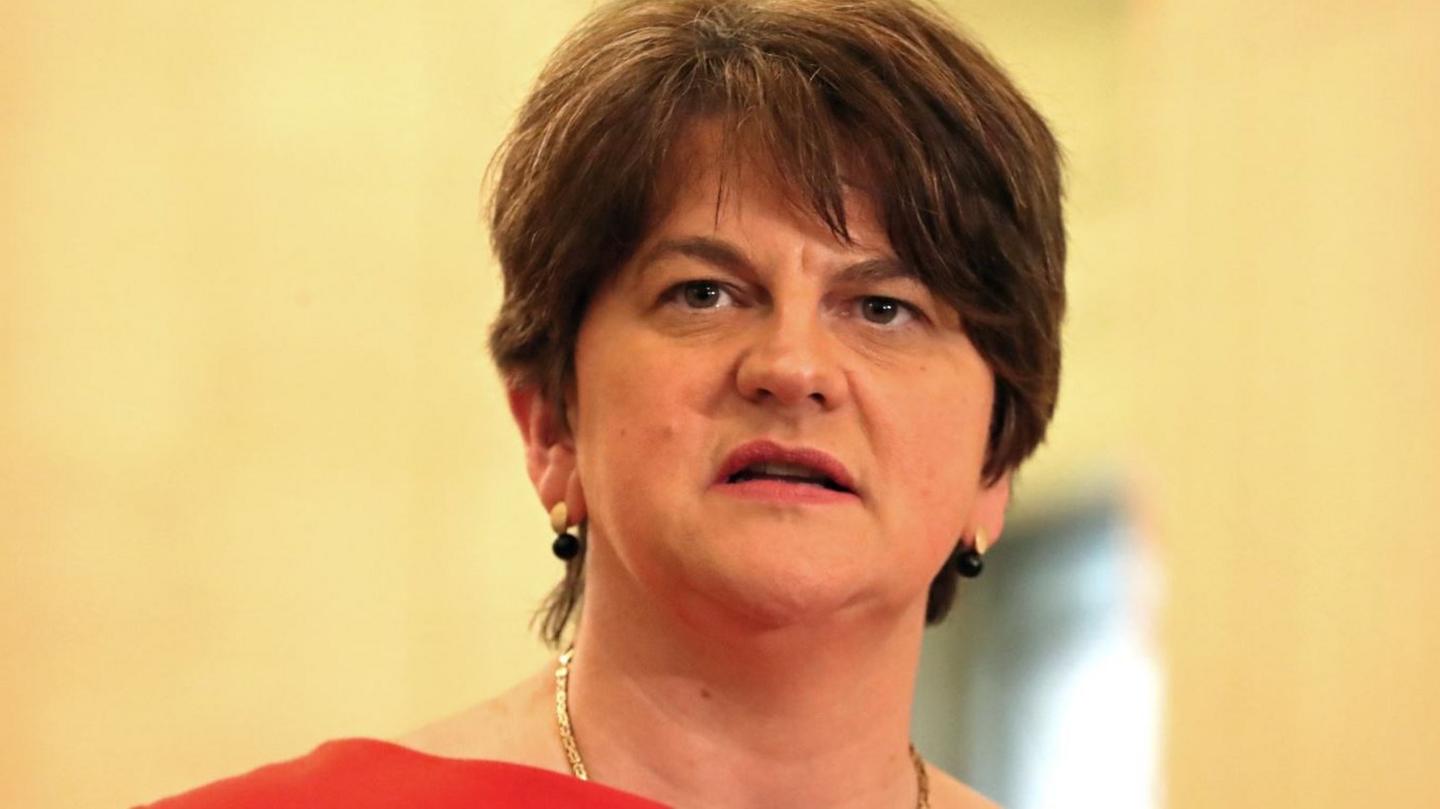Brexit: Unionist parties to join NI Protocol legal challenge
- Published

Democratic Unionist Party (DUP) leader Arlene Foster; Ulster Unionist (UUP) leader Steve Aiken; and Traditional Unionist Voice (TUV) leader Jim Allister
Northern Ireland's major unionist parties will be part of a legal bid to challenge the NI Protocol.
The Democratic Unionist Party (DUP), Ulster Unionists (UUP) and Traditional Unionist Voice (TUV) have said they are supporting judicial review proceedings.
Former MEP Ben Habib and former Labour MP Kate Hoey are also backing it.
DUP leader Arlene Foster said they were committed to challenging the NI Protocol "in the courts, in Parliament, in Stormont and in Brussels".
She added that the judicial review proceedings will challenge the NI Protocol's "compatibility with the Act of Union 1800, the Northern Ireland Act of 1998 and the Belfast Agreement".
The Northern Ireland Protocol is the part of the Brexit deal which prevents a hardening of the land border between Northern Ireland and the Republic of Ireland.
It does that by keeping Northern Ireland in the EU single market for goods.
That has created a new trade border with Northern Ireland and the rest of the UK.
Unionists want the protocol to be scrapped because they say it damages trade and threatens Northern Ireland's place in the UK union.
The DUP said Northern Ireland's First Minister Arlene Foster will be named parties in the proceedings along with deputy leader Nigel Dodds, Westminster leader Sir Jeffrey Donaldson and Sammy Wilson, the party's Westminster chief whip.

Arlene Foster said that unionists' concerns will not be silenced
Mrs Foster said Mr Habib, Mrs Hoey and Traditional Unionist Voice (TUV) leader Jim Allister were so far "committed to these proceedings but we expect others to also join this path".
She said the protocol "drove a coach and horses" through both the Act of Union and the Belfast Agreement, also known as the Good Friday Agreement.
"We are following our five-point plan of opposition to the protocol and will challenge its imposition in the courts, in Parliament, in Stormont and in Brussels," she added.
"The views of unionists will not be side-lined nor our concerns silenced."
'Fair and legitimate thing to do'
UUP leader Steve Aiken said that "testing the NI Protocol in the courts is a fair and legitimate thing to do".
He added that the actions that brought the protocol into force "fundamentally undermine the principle of consent and laid out in the Belfast Agreement".
"The absurdities of the protocol affect everyone in Northern Ireland; every legitimate action needs to be taken to deal with this very unequal, disproportionate and divisive treaty," he added.
TUV leader Jim Allister said he welcomed the planned judicial review challenge and that he hoped "all strands of unionism will join in this necessary effort".
He said that "without Ben Habib and Baroness Hoey we would not be at this point".
However, he said that it was "not a substitute or alternative to sustained and effective political action against the protocol".
The Social Democratic and Labour Party (SDLP), who campaigned against Brexit and have said parties must work together to make the protocol work, described the legal action as "ill-judged".
"There will be few with sympathy for the argument that the protocol, which prevents a hard border in Ireland and guarantees dual market access for local businesses, breaches the Good Friday Agreement," said SDLP leader Colum Eastwood.
"That notion is stretched even further when the argument is made by a party that opposed the agreement in the first place.
"I'm sure the courts will decide what we all, including the DUP, already know. The protocol is necessary because of the hard Brexit that they supported."
Sinn Féin MP Chris Hazzard said those supporting the judicial review were "the same unionists who saddled up to the Tories, who throughout the course of the Brexit shambles have treated the people here with utter contempt".
He added that the protocol "safeguards the Good Friday Agreement, and avoids a hard border on the island of Ireland, and ensures the maintenance of north-south co-operation".
"What matters is that executive ministers fulfil their legal duty and implement the protocol where they have responsibility to do so, in accordance with the law."
- Published4 February 2021

- Published2 February 2024

- Published30 January 2021
